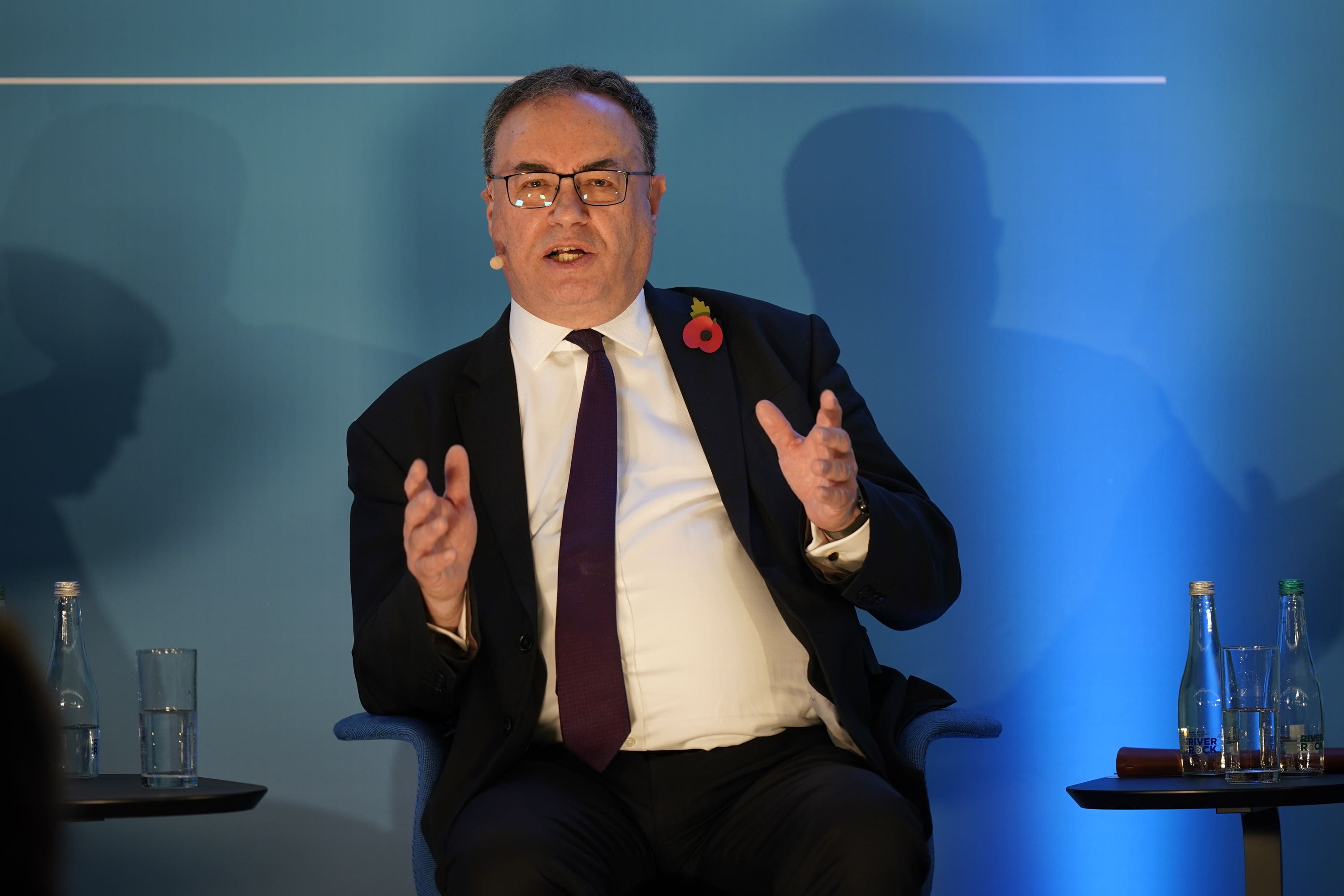Bank governor Bailey ‘optimistic’ that inflation will fall
Bank of England governor Andrew Bailey said inflation should fall below 2% within the next two years.

Your support helps us to tell the story
From reproductive rights to climate change to Big Tech, The Independent is on the ground when the story is developing. Whether it's investigating the financials of Elon Musk's pro-Trump PAC or producing our latest documentary, 'The A Word', which shines a light on the American women fighting for reproductive rights, we know how important it is to parse out the facts from the messaging.
At such a critical moment in US history, we need reporters on the ground. Your donation allows us to keep sending journalists to speak to both sides of the story.
The Independent is trusted by Americans across the entire political spectrum. And unlike many other quality news outlets, we choose not to lock Americans out of our reporting and analysis with paywalls. We believe quality journalism should be available to everyone, paid for by those who can afford it.
Your support makes all the difference.Bank of England governor Andrew Bailey has said he is “optimistic” inflation will come down to normal levels, but warned that the cost of borrowing will stay high for some time.
Mr Bailey said that the Bank’s forecasts, released last week, suggest that by the end of 2025 inflation will have returned to the target of 2%.
Speaking at an event in Dublin, the governor reiterated that it is “too early” to talk about cutting interest rates.
Mr Bailey said: “I think it is common when you look at the Fed minutes, you look at ECB, you look at us, it’s really too early to be talking about cutting rates.
“The market of course will reach a view, it has to reach a view on the future path of interest rates.
“But we are very clear. We’re not talking about that. What we’re saying is that policy is going to have to be restrictive for an extended period.”
He added: “Our forecast suggests we will be back at the target in around the two-year horizon.
“I’m optimistic. I think it will happen but I’m afraid we’ve got to continue doing the work to make it happen.”
Speaking at a conference hosted by the Central Bank of Ireland, Mr Bailey said that Brexit had reduced the openness of the British economy.
“As a public official, I take no position on Brexit per se. That was a decision for the people of the UK,” he said.
“It has led to a reduction in the openness of the UK economy, though over time new trading relationships around the world should, and I expect will, be established.
“Of course, that requires a commitment to openness and free trade.”
Mr Bailey also said that artificial intelligence (AI) is unlikely to be useful for the medium-term forecasts that the Bank does when setting monetary policy.
“I think the caution I would have from what I’ve seen so far is that machine learning focuses, if you like, on using vast amounts of data to predict one step ahead. That can be useful, don’t get me wrong,” he said.
“It’s not, I think, so useful in terms of the more medium-term forecasting we have to do for monetary policy where you really need a structural model.”